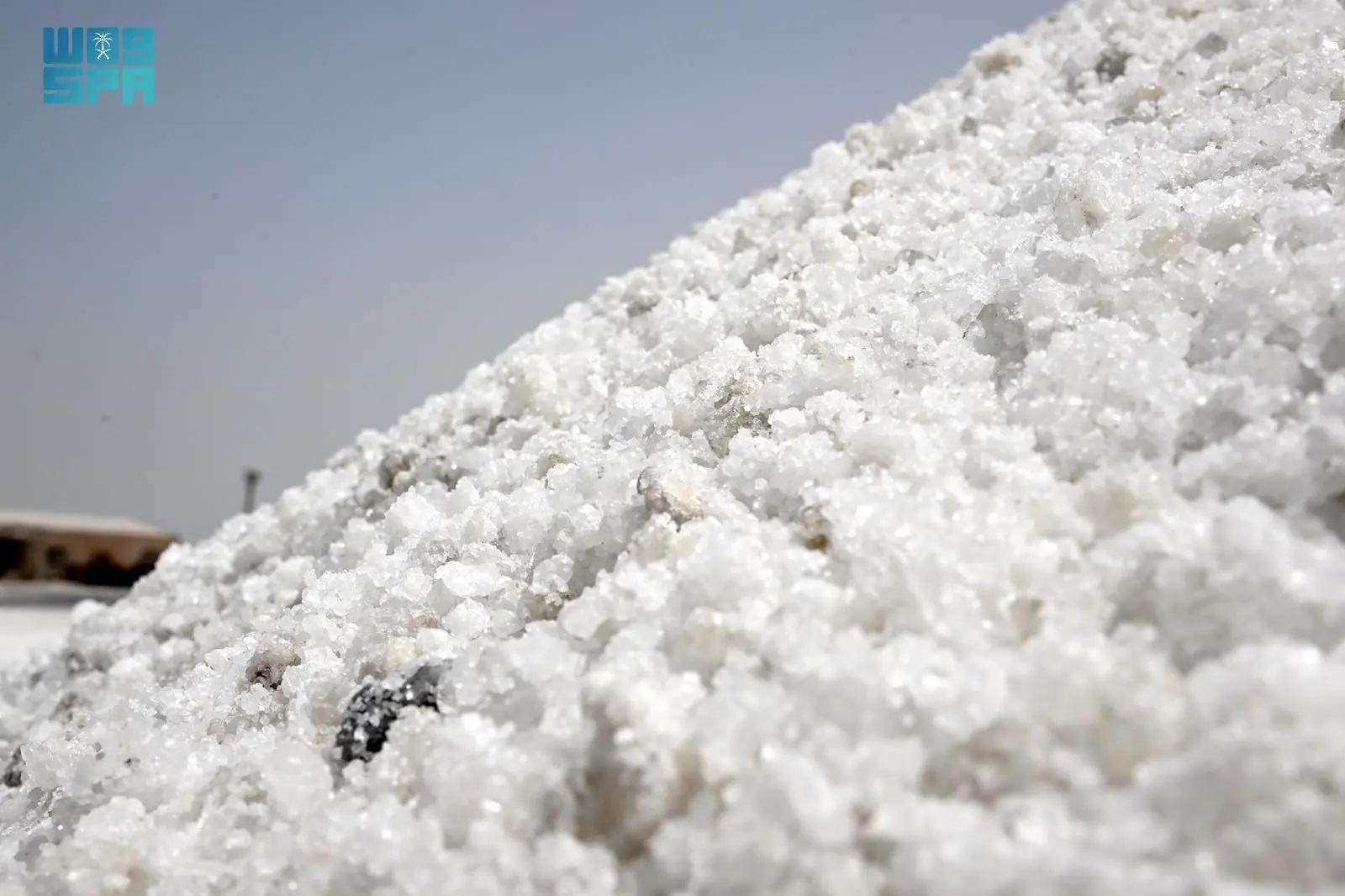
‘White Gold’ Supplies Local and Global Markets with a Value of SAR3.7 Billion
The salt industry in the Kingdom is experiencing significant growth, supported by the Ministry of Industry and Mineral Resources, which has launched numerous investment opportunities. These include licenses for geological exploration of salt ore and permits for the operation of salt production and packaging factories across the Kingdom.
As of mid-2025, 27 national salt factories, dubbed producers of “white gold,” have generated raw salt for multiple uses, contributing a total market value of SAR3.7 billion. Saudi raw salt, used in industrial, pharmaceutical, and food applications, has been exported both locally and internationally to countries such as Jordan, the UAE, Bahrain, Sudan, Somalia, Kuwait, Yemen, Greece, Djibouti, Oman, Qatar, Libya, Malaysia, Mauritania, and Indonesia. These exports exceeded a value of SAR18 million from 2024 through the first half of 2025.
Natural salt deposits are located in marshes along the Arabian Gulf coast in Eastern Region, spanning over 1,200 kilometers from Khafji in the north to Uqair in the south. The region is home to several salt-producing marshes, the oldest and most prominent being the Ras Al-Qarya coastal marsh in Buqayq Governorate, located about four kilometers from the sea. It produces highly purified natural salt that surfaces naturally and extends to a depth of five meters underground.
Sea salt is traditionally extracted during the summer by drying rainwater and seawater in the salt marshes using sunlight, allowing water to evaporate and leave behind raw salt. This salt is then packaged and distributed to local and international markets. In addition to sea salt, extraction also occurs from sodium chloride-rich rocks such as halite (commonly known as rock salt), as well as from natural ponds and mines.








